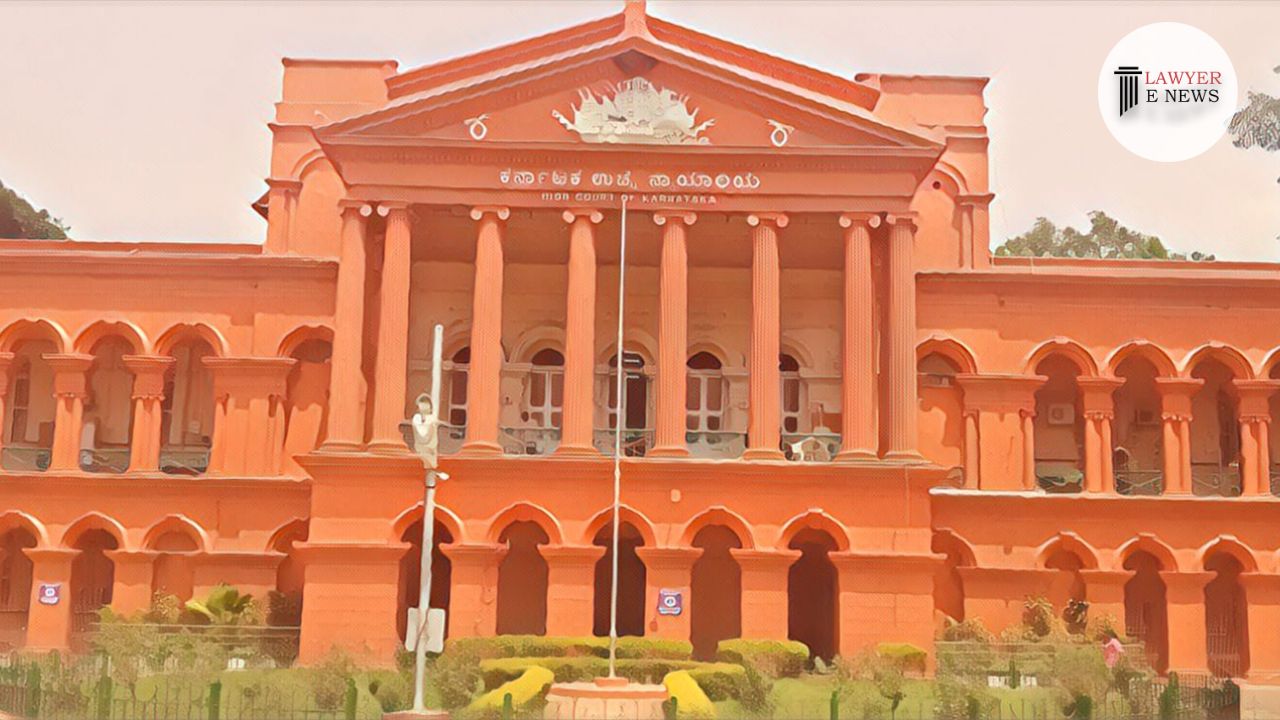-
by Admin
15 February 2026 5:35 AM



The Karnataka High Court, in a pivotal judgment, has allowed the civil revision petition filed by Smt. J. Vasanth Kumari, thereby rejecting the plaint initiated by her mother, Smt. Saraswathamma. The court, led by Justice N.S. Sanjay Gowda, emphasized the necessity of adhering to the prescribed limitation period, concluding that the suit challenging a 15-year-old gift deed was unequivocally time-barred. This decision overturns the trial court's earlier dismissal of the application under Order VII Rule 11 of the Civil Procedure Code (CPC).
Background:
The dispute centers around a gift deed executed by Saraswathamma in favor of her daughter, J. Vasanth Kumari, on July 1, 2004. The deed involved properties inherited by Saraswathamma following her husband’s death. Fifteen years later, in 2019, Saraswathamma filed a suit seeking the cancellation of this gift deed, as well as other related partition and sale deeds from 2002, 2005, and 2010. She claimed that these transactions were conducted without her knowledge and alleged fraudulent actions by her children.
Court Observations and Views:
Credibility of Limitation Claims:
Justice N.S. Sanjay Gowda highlighted the clear lapse of the statutory limitation period. "The plaintiff's suit to challenge the gift deed, partition deed, and sale deeds filed beyond the prescribed limitation period is barred," the court stated. Saraswathamma’s own admissions regarding the voluntary execution of the gift deed out of love and affection, without any allegations of fraud or coercion, were pivotal to the court's decision.
Assessment of the Trial Court’s Reasoning:
The High Court scrutinized the trial court’s rationale for dismissing the application under Order VII Rule 11 CPC. The trial court had rejected the application on the grounds that the plaint’s averments required full trial adjudication and that there was a recurring cause of action. However, the High Court found these justifications insufficient, noting that the plaintiff had not sought partition but rather sought declarations to invalidate long-standing deeds.
Legal Reasoning:
Justice Gowda provided a detailed explanation of the principles underpinning the Limitation Act. He reiterated that the plaintiff's claims were clearly time-barred. "The suit for the declaration that the gift deed executed in 2004 in favor of the daughter was filed 15 years later, making it hopelessly barred by limitation," Justice Gowda noted. The court further rejected the trial court’s interpretation of a recurring cause of action, emphasizing that such an argument was inapplicable in this scenario.
Justice Gowda remarked, "Since the suit has been filed 15 years after the execution of this gift deed, per the plaint averments itself, it is clear that the prayer in the suit was barred by the law of limitation."
Conclusion:
The Karnataka High Court’s ruling to allow the civil revision petition and reject the suit filed by Saraswathamma underscores the judiciary's commitment to enforcing the statute of limitations in civil cases. By overturning the trial court's decision, the High Court has reinforced the importance of timely legal action and the rigorous application of limitation laws. This landmark judgment is anticipated to significantly influence future cases involving delayed claims and will serve as a critical reference for legal professionals and litigants alike.
Date of Decision: 9th May 2024
Smt. J. Vasanth Kumari VS Smt. Saraswathamma
